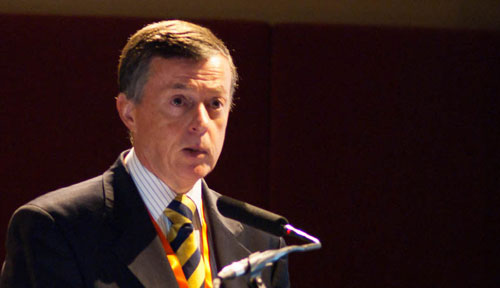
A senior BT Group official has hinted that the company, formerly known as British Telecom, is “close to” investing in fibre projects in Africa, and in “SA in particular”, as demand for high-capacity infrastructure in the region explodes.
A “data tsunami” is surrounding Africa thanks to myriad new undersea cables. But getting that data through Africa is the next big challenge, says Steve Kelly, GM for BT Global Telecom Markets in Asia-Pacific, North America, the Middle East and Africa, speaking at a submarine cables conference in Sandton on Tuesday.
Until now, BT has shied away from investing directly in infrastructure in SA, though it has been represented in this market for years through BT Global Services, a division that focuses on providing communications and IT services to business customers.
Details about BT’s plans to invest in infrastructure remain vague. However, the company is expected to host a media conference in Cape Town in a month’s time at which it may outline its investment intentions for the SA market, including its plans to pump money into fibre infrastructure.
A BT spokesman in London will say only that “a formal announcement will be made in due course”.
Kelly says the “problem used to be connecting to Africa with the right capacity at the right price. That’s changed. The problem now is connecting through Africa, a problem exacerbated by increasing demand for data from end users.”
He says networks must be willing to explore various models of increasing connectivity through wireless services, upgraded copper networks and fibre.
He says fibre is the most cost-effective long-term solution because it provides enormous capacity, network future-proofing and reliability. Nevertheless, building fibre networks is expensive and requires “political and economic stability to encourage investors”.
“Fibre on the edge doesn’t solve bandwidth problems without a supporting long-haul and backhaul network,” he says. “The African continent is increasingly surrounded by fibre, but there isn’t enough on the actual continent.”
However, fibre in Africa is sustainable and will create economic growth and allow the continent to be more competitive globally, he says. “Fibre will be the great enabler.” — Craig Wilson and Duncan McLeod, TechCentral
- Subscribe to our free daily newsletter
- Follow us on Twitter or on Facebook




